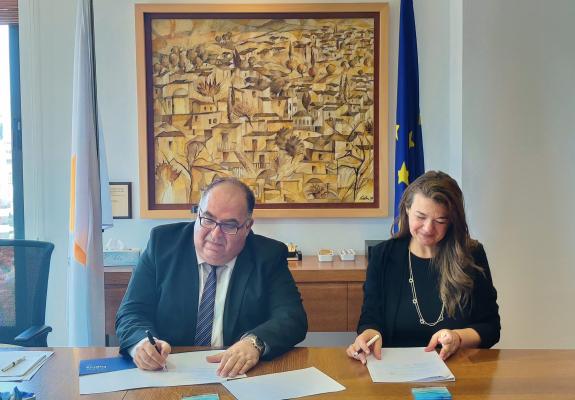Proposed Solution Could Grant Property Titles to 20%-30% of Trapped Cyprus Buyers
Thoughts that might offer a solution for some of the 10,000 buyers who were trapped due to the developers' fault seem to be in motion by the responsible authorities.
According to information from Brief, a way out seems to have been found for one of the three categories of trapped buyers.
More specifically, the idea being considered is to grant a property title in cases where buyers were the first to mortgage the property to secure a housing loan. This is because the responsibility for the property being remortgaged by the developer lies entirely with the creditor who accepted it. Essentially, according to this thought, what will count for the issuance of the property title is who placed the first mortgage on the property. If the buyer mortgaged the property first, and the developer later, the buyer will be able to receive a property title once the housing loan is paid off.
In fact, according to the same information, these cases account for approximately 20% to 30% of the 10,000 buyers, which translates to around 2,000 to 3,000 borrowers.
As Brief previously reported, there are essentially three different categories of trapped buyers in Cyprus, who, according to official data from the Land Registry, number around 10,000.
The first category includes buyers who were trapped due to developers' debts. The developers mortgaged the property to the bank, sold it, but did not settle their loan obligations, leaving the property still mortgaged without the ability to issue a property title to the owners. In many of these cases, the property was mortgaged a second time by the buyers to secure a housing loan for its purchase.
The second category includes buyers trapped due to planning violations by the developers. This category is particularly challenging to resolve, as it involves serious breaches of building coefficients and other planning regulations.
The third category includes buyers who mortgaged the property to secure a loan, but later the developer mortgaged the entire project to the bank. (This is the category for which the aforementioned solution is being proposed.)
However, based on information from the Ministry of Interior, it is considered quite difficult to find a constitutional solution that can address the issues and obstacles arising for all three categories, as well as the vast majority of trapped buyers.
As part of its investigation, Brief requested data on both the amount of loans related to the 10,000 cases and the names of the developers who, through their illegal actions and failure to meet their loan obligations, trapped thousands of buyers.
It is noted that ETEK also requested the names of the developers, stating in its letters to Parliament that these names should be provided and made public. We recall the comment from the Appellate Judge, in which they urged MPs and the Ministry of Interior to answer five key questions regarding the issue, one of which was the disclosure of the identities of these developers.
These questions must be answered, as some of these developers continue to operate, and it is possible they may even be receiving public contracts. It is clear that these companies need to be identified and held accountable for their actions, which resulted in thousands of buyers being trapped. Furthermore, penalties must be imposed, either to resolve part of the problem or through sanctions, such as banning them from receiving new permits or contracts, as impunity cannot continue.






